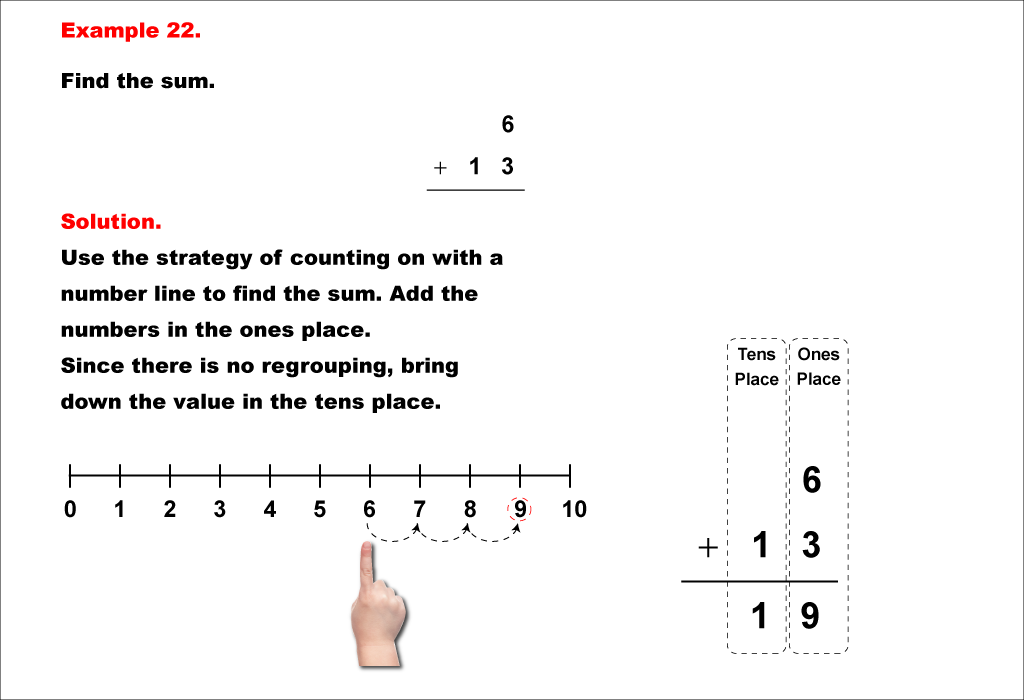
Display Title
Math Example--Arithmetic--Two-Digit Sums to 20 (No Regrouping)--Example 22
Display Title
Math Example--Arithmetic--Two-Digit Sums to 20 (No Regrouping)--Example 22

Topic
Addition
Description
Depicts an addition example (6 + 13) using a number line, with labeled "Tens Place" and "Ones Place." Illustrates the addition process without regrouping. Example 22: Find the sum of 6 + 13 using counting on with a number line. No regrouping is needed, so the tens place value is brought down. The sum is 19.
In general, addition is a fundamental arithmetic skill that helps students understand the concept of combining quantities. Through these examples, students can see how basic addition works with small numbers, building a strong foundation for more complex operations. By visualizing the steps, students can reinforce their understanding of number relationships.
Seeing multiple worked-out examples allows students to recognize patterns in addition. For instance, consistently seeing sums calculated on a number line or through other visual aids enables them to approach addition with confidence. Reinforcement through examples is essential for deep comprehension and retention of the concept.
Teacher’s Script: Today, we’re looking at an example of adding numbers. In this case, let’s focus on example 22: find the sum of 6 + 13 using counting on with a number line. no regrouping is needed, so the tens place value is brought down. the sum is 19.. Notice how we carefully add the numbers step by step. Think about how each example builds on what we’ve learned before.
For a complete collection of math examples related to Addition click on this link: Math Examples: Adding Two-Digit Numbers Collection.
| Common Core Standards | CCSS.MATH.CONTENT.1.NBT.C.4 |
|---|---|
| Grade Range | K - 2 |
| Curriculum Nodes |
Arithmetic • Addition • Addition Facts to 25 |
| Copyright Year | 2021 |
| Keywords | sums to 20, place value, addition |